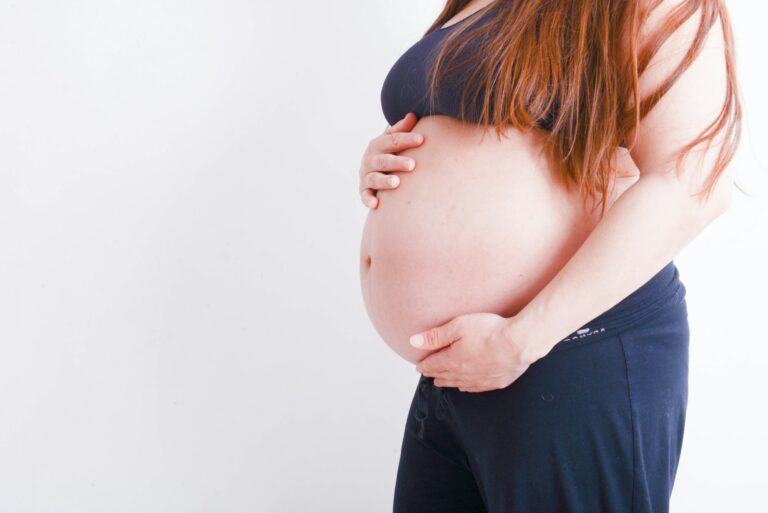Postpartum weight loss—three small words that carry immense expectations and questions. Parents, you might gaze at your body after childbirth, mapping unfamiliar silhouettes and asking, “When, how, or even will I regain my pre-pregnancy shape?” The truth? Every postpartum journey is different—rugged for some, smooth for others, and always laced with emotional and physical demands. Concerns often swirl around persistent weight, recovery timelines, hormone changes, and the sobering fatigue that lingers for weeks. While the pressure to “bounce back” can feel relentless (everywhere, those ubiquitous before-and-after photos), evidence-based strategies grounded in nutrition, physiology, and emotional support offer genuine hope. Let’s unravel postpartum weight loss, offering clarity on expectations, medical insights on safe recovery, layered explanations on nutrition and gentle exercise, and—importantly—compassion for your experience.
What Really Happens During Postpartum Weight Loss?
You may step on the scale days after delivery and notice a drop—sometimes 10 to 13 pounds vanish almost overnight, a direct result of delivering your baby, the expulsion of the placenta, and the sudden release of extra fluids accumulated during pregnancy. Yet as weeks unfold, the numbers shift more slowly; typically, about half of the pregnancy weight disappears within six weeks, though the full return to pre-pregnancy weight can extend up to twelve months, or even longer. Around 37% of women lose all gestational weight within six months—a statistic that speaks volumes. For many, weight lingers, and this “postpartum weight retention” can correlate with long-term risks such as obesity, type 2 diabetes, and cardiovascular disease.
What’s at stake isn’t just appearance but metabolic health. Early, science-backed healthy habits not only protect your heart and blood sugar but also influence future pregnancies. Still, urgency harms more than helps. Crash dieting, intense calorie restriction? Both can rob your body of energy, compromise immunity, and (if you’re breastfeeding) reduce milk production—an ironic outcome when the goal is health.
Factors That Influence Postpartum Weight Loss
Are you wondering, “Why does postpartum weight loss seem effortless for some but not for others?” Multiple threads, woven tightly:
- Gestational weight gain: The more weight gained during pregnancy, the higher the baseline for postpartum loss.
- Breastfeeding: This can promote calorie expenditure—up to 500 kcal per day—but outcomes fluctuate widely. It shouldn’t be viewed as a strict weight loss plan, but rather as a nutritional choice.
- Hormonal tides: After birth, fluctuating levels of estrogen, insulin, and cortisol (the main stress hormone) upend both metabolism and appetite.
- Sleep deprivation: Disrupted nights aren’t just exhausting; they destabilize leptin and ghrelin (appetite-regulating hormones), fueling cravings for quick sugars.
- Mental health: Postpartum depression and anxiety shift eating rhythms and erode motivation for movement.
- Personal context: Age, ethnicity, financial security, social support, multiple births—all shape behaviors and opportunities for self-care.
Pinpointing these individual variables empowers parents to craft steps that fit personal realities. For the body to recover, an orchestrated blend of balanced nutrition, scheduled movement, and emotional care is indispensable.
Embracing Body Positivity and Mental Health
Your body, post-pregnancy, is not a “project”—it’s a testament to transformation. Media often lionizes impossible standards, but a postpartum belly, stretch marks, and shifting curves are physiological narratives of growth, not markers of failure. Practicing self-kindness isn’t just for comfort; it buffers against stress and depression, both of which shape your approach to postpartum weight loss.
Mood disturbances like postpartum depression frequently amplify weight retention. Low mood, loss of pleasure, or anxious ruminations create a feedback loop with poor sleep and erratic appetite. Should persistent symptoms emerge—loss of interest, troubling sleep, persistent sadness—engage healthcare providers early. Recovery, both mental and physical, is more sustainable with compassionate medical partnership.
Nutrition for Healthy and Sustainable Postpartum Weight Loss
Forget deprivation; think restoration. The body after childbirth faces immense physical demands—tissue healing, hormonal recalibration, and (for many parents) milk production. Postpartum nutrition is the cornerstone, not only for weight management but for stamina and immune strength.
Essentials for Optimal Nutrition
- Complex carbohydrates: Whole grain bread, brown rice, quinoa, and legumes (like lentils or beans) fuel cellular repair. Legumes also deliver gut-healthy fiber.
- Healthy fats: Olive oil, canola oil, avocados, nuts—these supply lipids vital for hormone synthesis and neural health. Even a tablespoon per meal can optimize absorption of fat-soluble vitamins.
- Protein sources: Lean meat, fish, eggs, tofu, tempeh, dairy—by supporting satiety and cellular renewal, they stabilize energy and mood. For those facing digestive unease, plant-based proteins (like chickpeas or lentils) offer gentle alternatives.
- Hydration: Breastfeeding? Fluids become even more urgent—water, herbal teas, and fruits like watermelon or citrus keep kidneys and tissues functioning efficiently.
- Micronutrients: Iron combats anemia, while Vitamin D and calcium fortify bone strength. B vitamins (often found in leafy greens and whole grains) counter fatigue—a common complaint post-birth.
- Gut health: Dietary fiber, seeds, and even supervised probiotics sustain microbiome diversity, aiding nutrient absorption and comfortable digestion.
Rigid calorie cutting undermines recovery and, if nursing, depletes milk production. The lower threshold for daily intake? About 1,500 kcal—as recommended by clinical trial data—though individual needs vary. Mindful meal timing, eating slowly, and engaging all senses in food preparation make every bite count. Presentation matters—colorful, aromatic dishes nudge the brain toward satiety and contentment.
Making Nutrition Manageable
Meal prep needn’t be elaborate. Batch cooking, prepping grains or proteins in advance, and leaning on nutrient-dense frozen vegetables can shave decision fatigue from busy evenings. Family and friends often want to help—sharing shopping or providing a home-cooked meal is both practical support and a way to foster community.
Exercise and Gradual Movement After Childbirth
Physical movement is not just about burning calories. It’s about restoring core strength, improving vascular tone, and smoothing the hormonal roller coaster of the postpartum months. Visualize small, incremental steps: gentle walks with a stroller (doubles as soothing time for your baby), stretching in the living room, or even practicing deep breathing for pelvic floor rehabilitation.
- After vaginal delivery: Walking, light stretching, and gentle core engagement exercises can begin soon—sometimes within days.
- After cesarean or complicated births: Clearance from your provider is non-negotiable, often between 4 and 6 weeks post-delivery.
- Focus on function: Pilates, yoga, swimming, bicycle rides—each builds stamina while remaining kind to healing tissues.
- Caution with impact: High-impact and abdominal workouts must wait for professional green light, as overzealous routines risk pelvic floor damage.
- Include your baby: Parent-baby yoga, stroller walks—these nurture connection and model positive routine for your little one.
Energy levels vary; a single, ten-minute walk counts. Over time, increasing duration or intensity (as your body allows) brings cardiovascular, muscular, and mental health benefits.
Diet and Exercise: Integrated for Lasting Postpartum Weight Loss
Should you focus on food, or fitness? Science is unambiguous: the most effective approach blends diet and movement. Restrictive diets alone, though sometimes trending on social media, may hasten muscle loss and rebound weight gain. In contrast, a pragmatic combination preserves lean mass, facilitates fat reduction, and maintains milk supply for breastfeeding.
Customization is key. Set small goals—a five-minute daily walk, adding a new vegetable each week, or trying a calming routine before bedtime. Progress doesn’t always look linear, and numbers can’t always describe growth. Notice improvements in mood, stamina, or even ease of daily parenting tasks—these count as markers of effective postpartum weight loss.
Tracking Progress and Celebrating Achievements
Obsessing over scales only tells one story. Alternative markers—waist circumference, fit of your clothes, surge in energy—paint a more nuanced portrait. Record small victories, whether that’s tackling a park outing or enjoying restful sleep for the first time in months. Recognize each milestone with kindness—a warm bath, reading time, or a cherished family walk.
Navigating Barriers to Postpartum Weight Loss
Recovery after childbirth can be unpredictable. Pain, persistent fatigue, or even the demands of round-the-clock parenting complicate intention with reality. The secret? Prioritize self-care where possible. Divide tasks, invite loved ones to share responsibilities, and lean on professionals for expert input. Parent groups—both local and online—create spaces for motivation, practical ideas, and moral support.
Sleep, often underestimated, is a linchpin for weight regulation. Even sporadic naps improve hormonal balance and appetite control. While interrupted rest is a hallmark of newborn life, treat sleep as foundational—not a luxury.
Medical Support and Social Networks
Partnership with healthcare professionals grounds postpartum weight loss in safety. Providers routinely evaluate nutritional sufficiency, check for anemia and vitamin deficiencies, and guide graduated return to exercise. Emotional support matters equally; mentioning mood swings or anxiety is not only encouraged, but expected. Seek help early—timely interventions amplify recovery for both you and your child.
Family and community? They matter too. Accept assistance graciously—whether meals, childcare, or simply company. Explore resources like parent fitness classes, digital wellness apps, and peer groups—each offers practical and emotional scaffolding for progression.
Key Takeaways
- Postpartum weight loss, far from a rapid contest, unfolds best through a synergy of balanced nutrition, progressive movement, and attention to emotional well-being—tempered by patience and respect for your unique trajectory.
- Real progress blends small, sustainable choices with self-compassion. Excessive restriction harms more than helps.
- Physical, mental, and metabolic recovery are deeply linked; when in doubt, consult medical professionals for tailored support.
- Tracking progress with diverse markers—energy, mood, physical comfort—creates a more complete picture than weight alone.
- Community, family, and healthcare networks elevate and sustain motivation—and practical strategies.
For guidance tuned to your specific postpartum journey, plus free questionnaires to track your child’s health, try the Heloa app. Reliable, accessible resources are always within reach for you and your family.
Questions Parents Ask
When can I start losing weight after giving birth?
Every parent’s recovery timeline is unique. Usually, gentle movement and balanced nutrition can be considered soon after birth, but it’s wise to wait for your healthcare provider’s approval—especially before beginning any structured exercise or weight loss plan. This is often around 4 to 6 weeks postpartum, but it can be longer, especially after a C-section or if there were complications. Rassurez-vous, a gradual approach is not only safer but also supports healing and well-being.
Are there any supplements or drinks that help with postpartum weight loss?
It’s natural to look for simple solutions, like supplements or special drinks, during the postpartum period. However, before trying any such products, il est important to consult your healthcare provider. Certain supplements might not be appropriate, particularly if you are breastfeeding or have specific health needs. A focus on a varied, nutritious diet along with plenty of water is generally the most effective and safe way to support your recovery.
Is it safe to lose weight while breastfeeding?
Losing weight gently while breastfeeding is possible and usually safe if done mindfully. Nourishing your body with enough calories and key nutrients remains essentiel to maintain milk supply and your own energy. Rapid weight loss can affect lactation, so adopting small, steady changes is often best. If you have concerns about your weight loss or milk supply, reaching out to a healthcare professional can provide you with reassurance and tailored advice.
Further reading:









